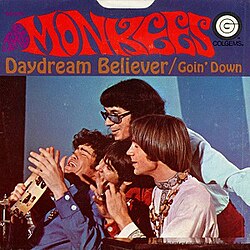 “God Only Knows” by The Beach Boys is widely regarded as one of the greatest songs ever written. Released in 1966 as part of their landmark album “Pet Sounds,” the track stands out for its lush arrangements, heartfelt lyrics, and innovative production techniques. This article explores the origins of “God Only Knows,” its lyrical themes, musical composition, production details, and its enduring impact on music and popular culture.
“God Only Knows” by The Beach Boys is widely regarded as one of the greatest songs ever written. Released in 1966 as part of their landmark album “Pet Sounds,” the track stands out for its lush arrangements, heartfelt lyrics, and innovative production techniques. This article explores the origins of “God Only Knows,” its lyrical themes, musical composition, production details, and its enduring impact on music and popular culture.
Origins and Context:
The creation of “God Only Knows” can be traced back to Brian Wilson’s ambition to craft a sophisticated and emotionally resonant album that would transcend the typical boundaries of pop music. Inspired by The Beatles’ “Rubber Soul” and motivated by a desire to create a cohesive artistic statement, Wilson envisioned “Pet Sounds” as a project that would push the creative limits of The Beach Boys and the genre itself.
Collaborating with lyricist Tony Asher, Wilson sought to express profound emotions and introspective themes through his music. “God Only Knows” emerged as one of the standout tracks from this collaboration, encapsulating the essence of Wilson’s artistic vision. The song’s lyrics, melody, and arrangement reflected a level of sophistication and emotional depth that set it apart from the band’s previous work.
Lyrical Themes and Narrative:
“God Only Knows” is a love song that explores themes of devotion, vulnerability, and the existential significance of a loved one. The lyrics, written by Tony Asher, convey a sense of profound attachment and dependency, capturing the essence of true love in its purest form. The opening lines, “I may not always love you / But long as there are stars above you,” introduce a sense of timelessness and enduring commitment.
The chorus, with its iconic line “God only knows what I’d be without you,” underscores the depth of the narrator’s feelings. This line, repeated throughout the song, serves as both a declaration of love and an acknowledgment of the uncertainty and fragility of life. The lyrics’ simplicity and directness, combined with their emotional resonance, allow listeners to connect with the song on a deeply personal level.
The second verse continues to explore the theme of unconditional love, with lines such as “If you should ever leave me / Though life would still go on, believe me / The world could show nothing to me / So what good would living do me.” These lyrics highlight the narrator’s reliance on their loved one for meaning and fulfillment, emphasizing the idea that love gives life its true purpose.
Musical Composition and Arrangement:
Musically, “God Only Knows” is a testament to Brian Wilson’s genius as a composer and arranger. The song’s intricate arrangement and innovative use of instruments create a lush, symphonic sound that was groundbreaking for its time. Wilson’s mastery of harmony and orchestration is evident in every aspect of the song, from the complex vocal harmonies to the rich instrumental textures.
The track opens with a delicate, yet powerful, introduction featuring a French horn played by Alan Robinson. This sets the tone for the song, creating a sense of grandeur and beauty. The verse melody, sung by Carl Wilson, is simple yet poignant, supported by a subtle yet effective instrumental arrangement that includes strings, woodwinds, and percussion.
The chorus features a complex vocal arrangement, with Brian Wilson and Bruce Johnston providing harmonies that enhance the emotional impact of the lyrics. The interplay between the lead and backing vocals creates a sense of depth and richness, making the chorus one of the most memorable and moving parts of the song.
The bridge section, with its change in key and tempo, adds another layer of complexity to the composition. The use of unconventional chord progressions and modulations showcases Wilson’s willingness to experiment and push the boundaries of pop music. This section, along with the song’s overall structure, reflects the influence of classical music on Wilson’s work.
Production Details:
The production of “God Only Knows” was a meticulous process, reflecting Brian Wilson’s dedication to achieving a specific sound and emotional effect. Recorded at Western Recorders in Hollywood, the sessions involved a group of highly skilled studio musicians, often referred to as “The Wrecking Crew.” Wilson’s role as producer allowed him to meticulously craft each element of the song, from the initial arrangements to the final mix.
One of the most notable aspects of the production is the use of unconventional instruments and recording techniques. The combination of traditional rock instruments with orchestral elements, such as the French horn, strings, and harpsichord, creates a rich and textured sound that was revolutionary for its time. The use of layered vocal harmonies, a hallmark of The Beach Boys’ sound, is executed with precision and creativity, adding depth and complexity to the track.
Wilson’s innovative approach to recording and mixing also played a crucial role in the song’s unique sound. Techniques such as double-tracking vocals, using reverb and echo effects, and experimenting with microphone placement allowed Wilson to achieve a level of sonic detail and clarity that was unprecedented in pop music. The final mix of “God Only Knows” captures the full range of emotional and musical nuances, making it a timeless masterpiece.
Cultural Impact and Legacy:
“God Only Knows” received widespread acclaim upon its release and has since been recognized as one of the greatest songs in the history of popular music. Its impact on both listeners and fellow musicians has been profound, influencing a wide range of artists across genres and generations. The song’s combination of lyrical depth, musical sophistication, and emotional resonance set a new standard for what pop music could achieve.
The track’s influence can be seen in the work of numerous artists who have cited it as an inspiration. Paul McCartney, for example, has often praised “God Only Knows” as one of his favorite songs, highlighting its impact on The Beatles’ own approach to songwriting and production. The song’s innovative use of harmony and orchestration has also influenced countless musicians and producers, shaping the evolution of pop and rock music.
“God Only Knows” has continued to resonate with audiences over the decades, maintaining its relevance and appeal. The song has been covered by numerous artists, including David Bowie, Elton John, and Neil Diamond, each bringing their own interpretation to the timeless classic. Its inclusion in films, television shows, and commercials has further cemented its place in popular culture, ensuring that new generations of listeners continue to discover and appreciate its beauty.
In addition to its musical influence, “God Only Knows” has also had a significant impact on the perception of The Beach Boys and Brian Wilson as artists. The song, and the “Pet Sounds” album as a whole, showcased Wilson’s genius as a composer, arranger, and producer, elevating The Beach Boys from a successful pop band to one of the most important and innovative groups in music history. Wilson’s willingness to experiment and push creative boundaries has inspired countless musicians to follow in his footsteps, fostering a spirit of innovation and artistic integrity.
Conclusion:
“God Only Knows” by The Beach Boys is a masterpiece that transcends the boundaries of pop music. Through its heartfelt lyrics, sophisticated musical composition, and innovative production, the song captures the essence of love and the human experience in a way that is both timeless and universal. As we reflect on the enduring legacy of “God Only Knows,” we are reminded of the power of music to touch our hearts, inspire our minds, and connect us across generations.
Brian Wilson’s creation continues to resonate with listeners around the world, serving as a testament to the brilliance of The Beach Boys and the transformative potential of music. “God Only Knows” remains a shining example of what can be achieved when artistic vision, technical skill, and emotional depth come together in perfect harmony, securing its place as one of the greatest songs ever written.


